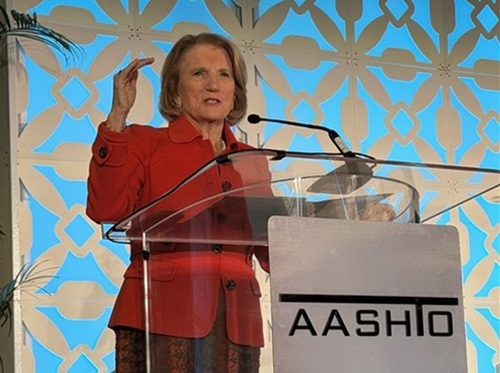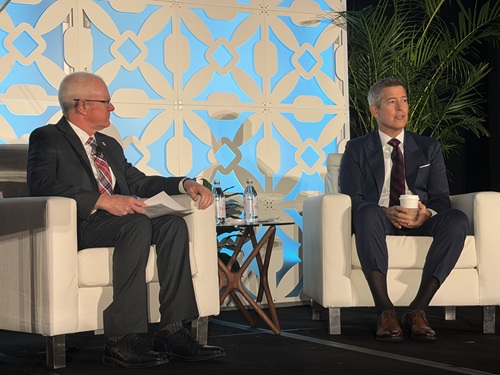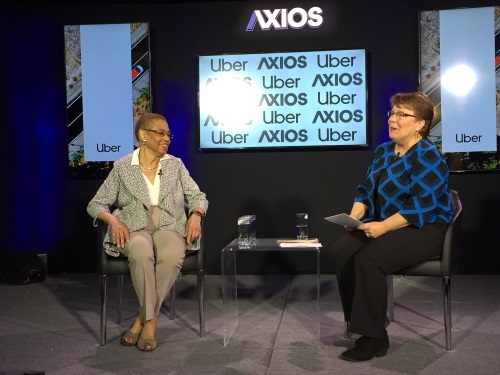Finding a bipartisan solution to funding surface transportation and other infrastructure needs remains a major challenge in Congress, according to the chair and ranking member of the House of Representatives Subcommittee on Highways and Transit.
Speaking during the “Transforming Transportation” roundtable sponsored by Axios and Uber, Rep. Eleanor Holmes Norton, D, (seen in photo above at left) the at-large-representative for Washington D.C. and chair of the highways and transit subcommittee, said “money is the long and short of it. I would say that while our committee is the most bipartisan in Congress, the big divide is how we pay for transportation.”

She added that “we are no further along on the discussion over money than we were four years ago” when Congress passed the Fixing America’s Surface Transportation or FAST Act.
“The world of transportation has changed and the way we are supposed to pay for it is changing,” Rep. Holmes Norton explained.
Rep. Rodney Davis, R-Ill., the subcommittee’s ranking member, agreed with her view, saying it is “difficult to raise the gas tax,” especially as more fuel-efficient cars and trucks along with wider use of electric vehicles is “decimating” the revenue stream feeding into the Highway Trust Fund.

Rep. Davis said during the event that he believes transportation funding needs to be viewed like a 401 (k) retirement account. “We need multiple sources of revenues feeding into the Highway Trust Fund, not just the gas tax,” he explained. “Relying on just the gas tax is like relying on just one stock to fund your entire 401 (k).”
Rep. Homes Norton noted, however, that many states are boosting transportation funding on their own – including raising fuel taxes. “That says to me [raising fuel taxes] is not a controversial issue,” she stressed. “Congress must have guts to do what it has to do or come up with a different system” to fund transportation needs.
Rep. Holmes Norton added that alternative funding methods, such as a vehicle miles traveled or VMT fee, are only being adopted slowly.
“Even that [the VMT fee] is controversial, in terms of how we measure it and whether it is an invasion of privacy,” she said. “There are states in the West trying it out – but that’s closest we’ve come to a new vision.”
In the end, Rep. Holmes Norton stressed that to improve transportation, “it is going to cost us one way or another. We either pay for it or be stuck in the Eisenhower era of transportation and infrastructure.”
 Top Stories
Top Stories
Congressional Leaders Detail Key Transportation Priorities
February 27, 2026 Top Stories
Top Stories

